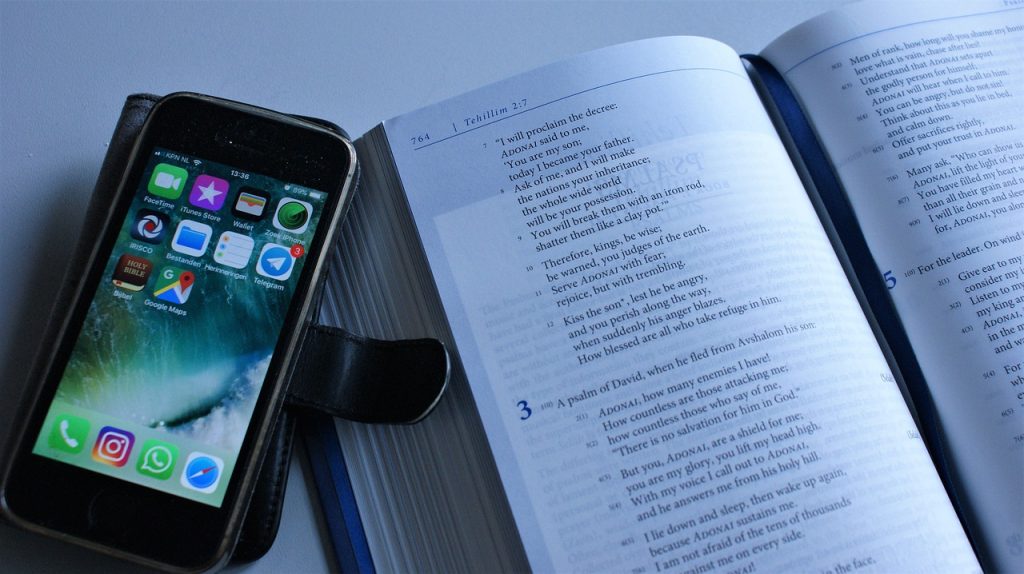Learning how to manage your time effectively is crucial to any student’s time at university, but also something you will need to take into any job/career. We, interns, are no different, the techniques we learnt as students to help us tackle procrastination have helped us manage our time whilst in our current roles. Here are some tips from each of us to help you with your studies (and avoid procrastination along the way!).

Beating procrastination the old fashioned way
By Joanna Rawnsley
I’m old fashioned because I keep everything in a paper diary, if I keep things on my phone, I end up looking at them more often which leads to me procrastinating. When doing my work, I always put my phone out of my line of sight: out of sight, out of mind. Back when I was doing my assignments, I’d even turn it off, or onto “do not disturb” and put it in a drawer. That way I wouldn’t be distracted by notifications, and I’d be solely focused on the task at hand.
Speaking of tasks, every morning before I start work, I write a daily to-do list for that day. As I go about my day, I tick off any tasks I’ve completed, you don’t realise how satisfying it is to tick off tasks until you do it. I also write down any deadlines in my diary when I get them, so I always know when things need to be in. I do, however, use my phone for reminders. Having an “annoying” alarm going off helps remind me of meetings and deadlines, this way I’m less likely to forget things and I always have a calendar handy.
Another way to help with procrastination is taking short breaks between classes, studying and work, especially if you’re working at a screen. Now bear with me, I’m serious about this! It’s good to take a break every hour or so to give your eyes a rest and stretch your legs. According to the Well-being Thesis taking “micro-breaks” throughout your workday will not only improve productivity but will also help with stress and your overall well-being. Getting a drink and/or talking to a peer for a few minutes helps you relax and then when you go back to your work, you will be more focused and more efficient. This also helps prevent you from burning out at the end of each day. I for one have been known to turn my laptop off and spend my evenings scrolling through social media and watching TV due to feeling lethargic after work. So, take breaks when you can and stay hydrated!
Now I’m going to go get a drink and take a micro-break of my own.
Time management in the workplace
By David Moore
Throughout this Internship, I have had to schedule my time between different people and their required designs. How I started this, is a week at a time and planned the following week ahead of time for example on one occasion I had to finish editing videos and complete Halloween designs in the same week. I was stressed at first but planning and preparation and doing the video first left me enough time to complete two designs a day so I could finish the work by Friday. What stopped me from getting distracted was I tried to mix my design work, so I was not doing the same work repeatedly. So, one day I would do videos on After Effects and on another day, I would create my own images on Photoshop and create slides and descriptions of work ideas for new images on PowerPoint or I would separate hours of the day to do a mixture of them all.
This is my first work experience and I have found the time management quite challenging as I am not a morning person as it took some time to get used to the hours but once I got into a routine, I have enjoyed my experience. It is important to me to keep a routine, so I do not lose track of where I am.
Avoiding procrastination with the right mindset
By Codey McShane
For me, the most important aspect of managing procrastination and my time for study was getting into the correct mindset. While I was at university, I found it easy to beat myself up for procrastinating, which would only make me want to study less. When thinking about doing my work evoked feelings of guilt or made me feel under intense pressure, it became way harder to get anything done at all. For me, what helped was accepting and forgiving myself for procrastinating – there was no point dwelling on what I’d already done, and all I could change was what I was going to do. I didn’t pretend that it hadn’t happened, but I recognized that I could still turn things around and give myself a fresh start.
It was incredibly freeing to be able to let go of these feelings of anxiety and realize that so long as I began working now, whatever I produced would be the best work I could’ve done starting from my fresh start. Of course, this isn’t a method that will work for everyone – there is no magical cure-all for feelings of anxiety or stress that may prevent you from being able to work. The answer may be different for you (e.g., therapy, medication, journaling, exercise, dieting, mindfulness/meditation). But if you can get yourself into the right frame of mind in whatever way works for you, I found it way easier to apply some simple methods to mitigate my procrastination.
Here are some tips that worked for me:
- Structure your time.
The simple act of creating a daily schedule for when I would study helped a lot. Having a planned-out routine for when I would study and when I could relax made it a lot easier to power through it. - Find your incentive to work.
Once I planned out exactly what and when I was going to be studying, I got a big sense of satisfaction by being able to cross that task off my list when I had finished doing it. Figure out what motivates you and use that to your advantage. - Starting is the hardest part.
Once I was studying, I tended to not get distracted. But getting there in the first place sometimes felt impossible. Studying when you don’t want to requires discipline; I had to do the work even though I didn’t want to. It helped me to think things like “Just do this first task, and then you can stop if you need to.” Once I’d completed that first task I was past those initial feelings and could then continue with my schedule.
Cutting distractions to avoid procrastination
By John Weightman
Procrastination was a problem for me when I first started out as a student so much so that I would sometimes have YouTube clips playing in the background while I was supposed to be concentrating on work. However, I soon realized I couldn’t keep doing this as even though I would get the work done it would take much longer and lead to stress as deadlines loomed. As has already been mentioned one way to solve this was to turn off my phone or other distractions. But sometimes we find it difficult so what I would occasionally do is listen to relaxing sounds or music nothing loud or distracting. It was just something that helped me concentrate though now more frequently I also go along with the method of just turning off my phone.

Another good way to avoid procrastination is to think about the different places you have been when studying where were you the most focused? Where were you most distracted? Is there anything you can do to make studying enjoyable?
So, in my case, the music made it more enjoyable for me and I also found that working in a different environment to the one where I spent my free time was beneficial. For example, as a student, I found I did more work in the library than I did in my room as there were just more distractions but at the library, the people around me were working which motivated me to work. I carried this on after I was a student too as when I’m working now, I have a separate room where I can do work and it doesn’t have things like a PlayStation.
It is important to remember though that what works for one person might not necessarily work for you. For example, studying with friends may limit your productivity. But for others, studying in groups can help to increase motivation and avoid procrastination.
Managing time
So, if we have got our procrastination under control how would I manage the time I have to work. Breaks as we have covered are important, I would often do something fun which for me is playing the guitar. I would say right I am going to write for maybe an hour then I’ll play the guitar for 20 minutes and let my mind concentrate on something else. Alternatively, you could try something like exercise which you may not believe but actually works in the same way sleep does. It can focus your state of mind, helping you to clear your head and boost your brainpower in between study sessions. If you don’t exercise much maybe aim for a 10-minute run/workout here and there, steadily increasing the amount you do as you go on.
Finally, as a history student planning and research was also very important for me. If I managed my time well it would allow me to process new information and plan how I was going to use it which can help you to avoid having to re-read and repeat any research. One way of effectively planning before researching is to make a list of everything you want to find out so that you can make notes below each subheading as you go. Rather than writing out information just anywhere, if it is stored in the correct place on paper, it will then go to the correct place in my mind.

2 replies on “Procrastination & Time Management”
I appreciate how you linked procrastination and time management so candidly. The insights feel relatable and the suggestions are realistic to try out.
Thank you for the feedback Leisa, we are glad you found the post useful. We hope our suggestions help!